
Leadership Focus journalist Nic Paton speaks to Tim Brighouse and Mick Waters about their latest book, which delves into education policy and practices from the 1970s to the present day.
It’s not, by any stretch, a throwaway beach read to get covered in sand and sun cream, but the latest book by leading educationalists Tim Brighouse and Mick Waters definitely needs to be on this summer’s reading list for school leaders.
'About Our Schools: improving on previous best' examines education policy and practices from the late 1970s to the present day. It is built from a series of revealing and forthright interviews with 14 secretaries of state – from Kenneth Baker to Michael Gove and Gavin Williamson – and other key leaders and thinkers within education.
Tim was, of course, schools commissioner for London between 2002 and 2007 and has been a professor of education at Keele University and chief education officer in Oxfordshire and Birmingham, among other notable roles.
Mick is a former head teacher and director of curriculum at the Qualifications and Curriculum Authority (QCA) and has worked for many years in teacher education and at policy level in local government in Birmingham and Manchester.
Critically, their book examines not just the lessons of the past but also where schools, school policy and school leadership need to go next, where the key areas for improvement need to be and how teachers, leaders and schools, more broadly, can and should improve.


It’s not, by any stretch, a throwaway beach read to get covered in sand and sun cream, but the latest book by leading educationalists Tim Brighouse and Mick Waters definitely needs to be on this summer’s reading list for school leaders.
'About Our Schools: improving on previous best' examines education policy and practices from the late 1970s to the present day. It is built from a series of revealing and forthright interviews with 14 secretaries of state – from Kenneth Baker to Michael Gove and Gavin Williamson – and other key leaders and thinkers within education.
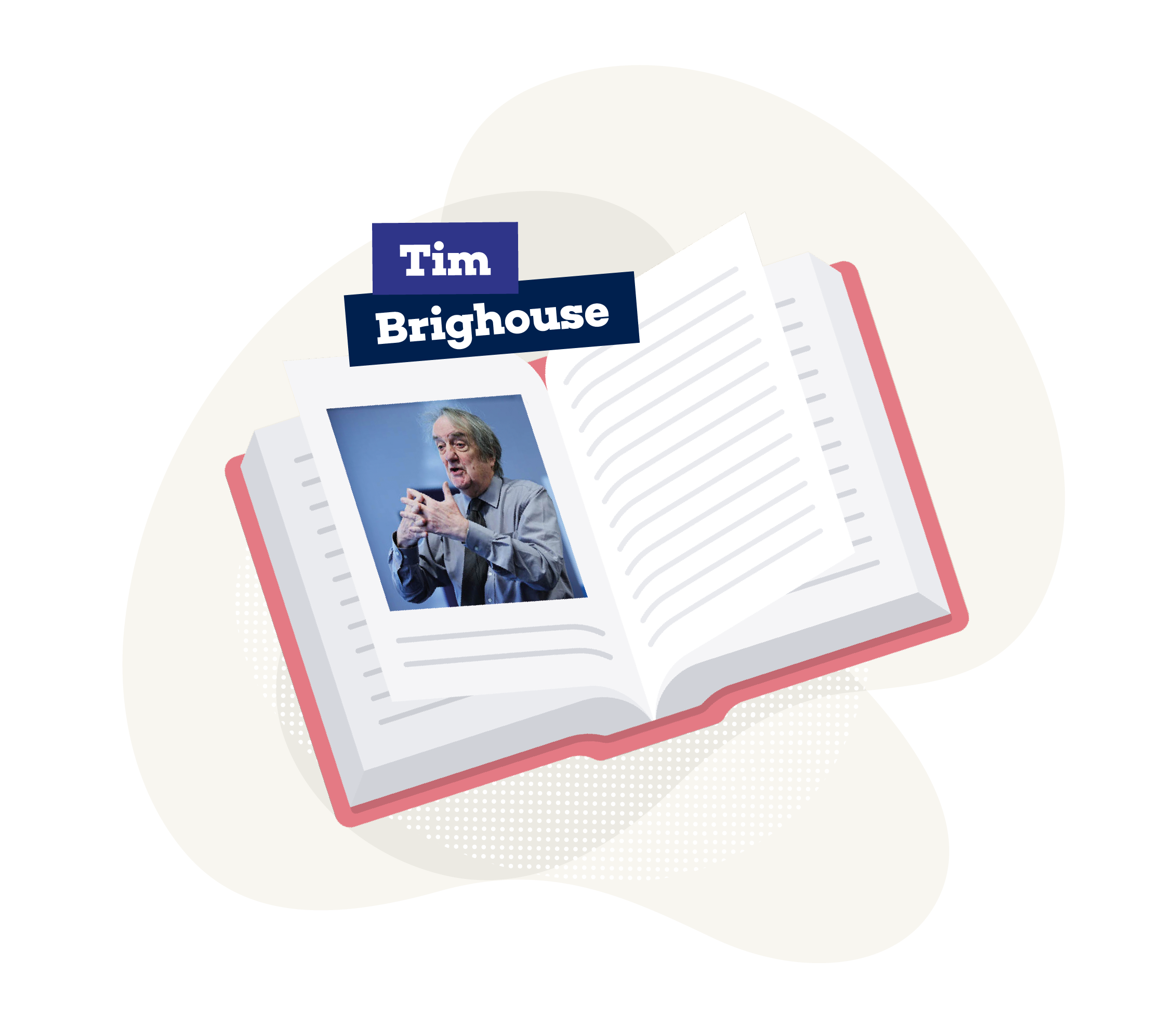
Tim was, of course, schools commissioner for London between 2002 and 2007 and has been a professor of education at Keele University and chief education officer in Oxfordshire and Birmingham, among other notable roles.
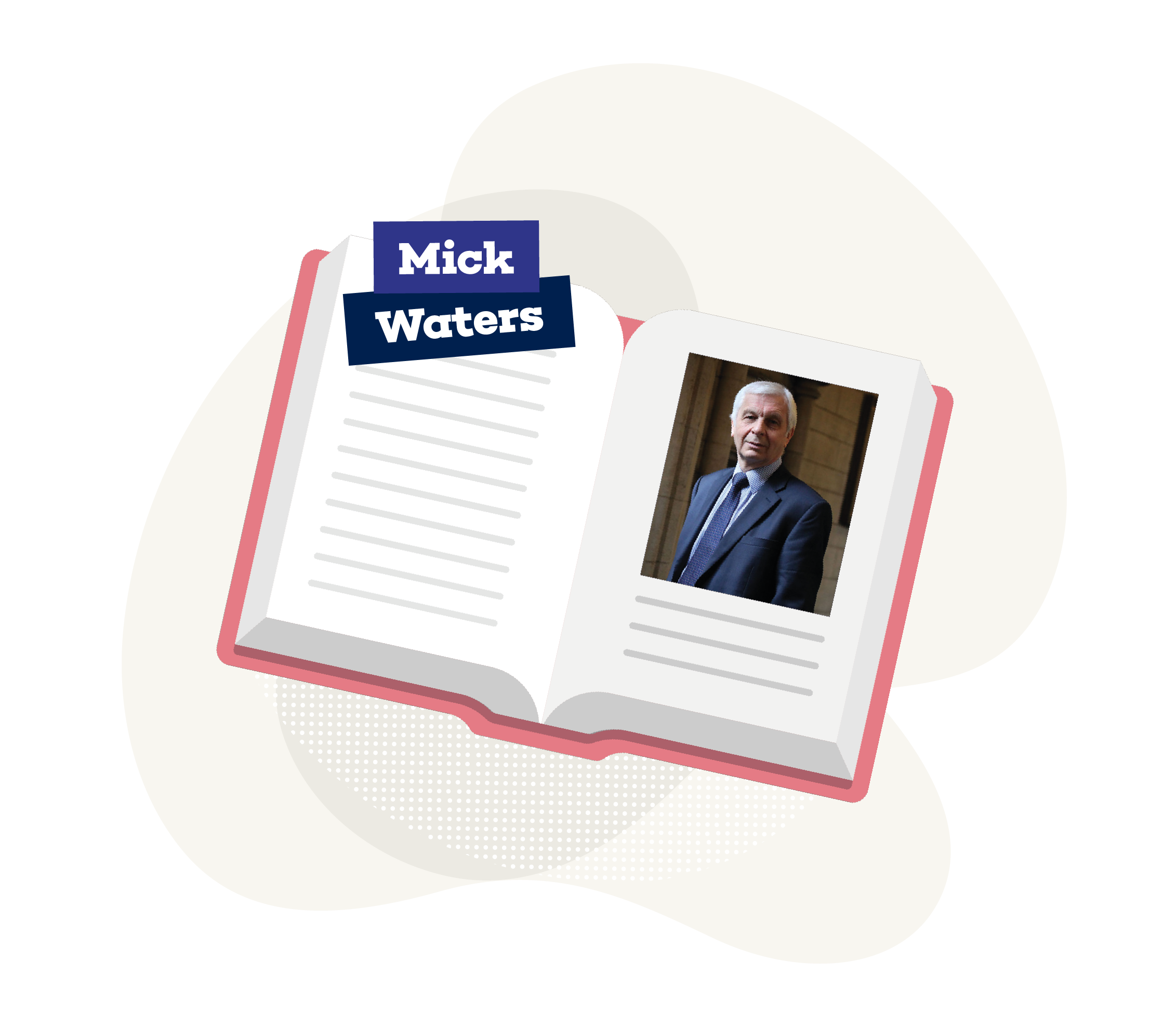
Mick is a former head teacher and director of curriculum at the Qualifications and Curriculum Authority (QCA) and has worked for many years in teacher education and at policy level in local government in Birmingham and Manchester.
Critically, their book examines not just the lessons of the past but also where schools, school policy and school leadership need to go next, where the key areas for improvement need to be and how teachers, leaders and schools, more broadly, can and should improve.
Leadership Focus caught up with Tim and Mick to find out more.
Tell us a bit more about your new book, 'About Our Schools'.
“'About Our Schools' is split into four parts and brings together a range of perspectives and viewpoints. It covers curriculum, pedagogy and assessment; school improvement and leadership; admissions, attendance, exclusions and behaviour; special educational needs and disabilities (SEND), and then the governance and finance of schooling,” explains Tim.
“It was originally intended to be based on interviews with 14 former secretaries of state and five ministers. However, one thing led to another once we got into it, and it expanded. The ministers and secretaries of state suggested the civil servants we should speak to, who then suggested SPADs [special advisers], and then we got into HMI and Ofsted. Then it was heads of multi-academy trusts (MATs), directors of children’s services (DCSs), heads of schools within MATs, head teachers of academies outside of MATs, free schools and governors. And then, what did teachers themselves think? In all, we ended up talking to 108 people.
“From all this evidence, we’ve been able to form a view about what influences policy and the weather the teacher makes. We start from the premise that it is the teacher who makes the big difference, sets the climate and creates the weather within a classroom setting. We’ve allowed the imagery of weather to influence the whole book because we think the head of department, the head of phase, the head of the school and, beyond the school, the MAT and the government all stir up the climate that affects that weather.
“Obviously, any teacher wants to create good weather so that children feel positive and engaged. That, to us, explains why differences in quality between teachers is something like eight times more important than differences between schools. The variation between schools can be big, but it is nowhere near as important as an in-school variation.
“The book has, in total, 13 chapters. It starts with 1976 and that whole period of doubt and disillusion. It ends in the present day, and we argue we’re now in a similar period of doubt and disillusion about the direction of schooling. Between 1976 and now, we’ve had a period of marketisation, competition, managerialism and centralisation. Loads of powers have gone away from local authorities and schools, and we think we have ended up with the most amazingly autocratic system, centrally directed and regulated.
“But we also argue that we’re in a period where we can, potentially, have a new age. We outline in the final chapter the measures we feel need to be taken to restore hope, ambition and collaborative partnerships – all to unlock far more talent than we have managed in the past,” adds Tim.
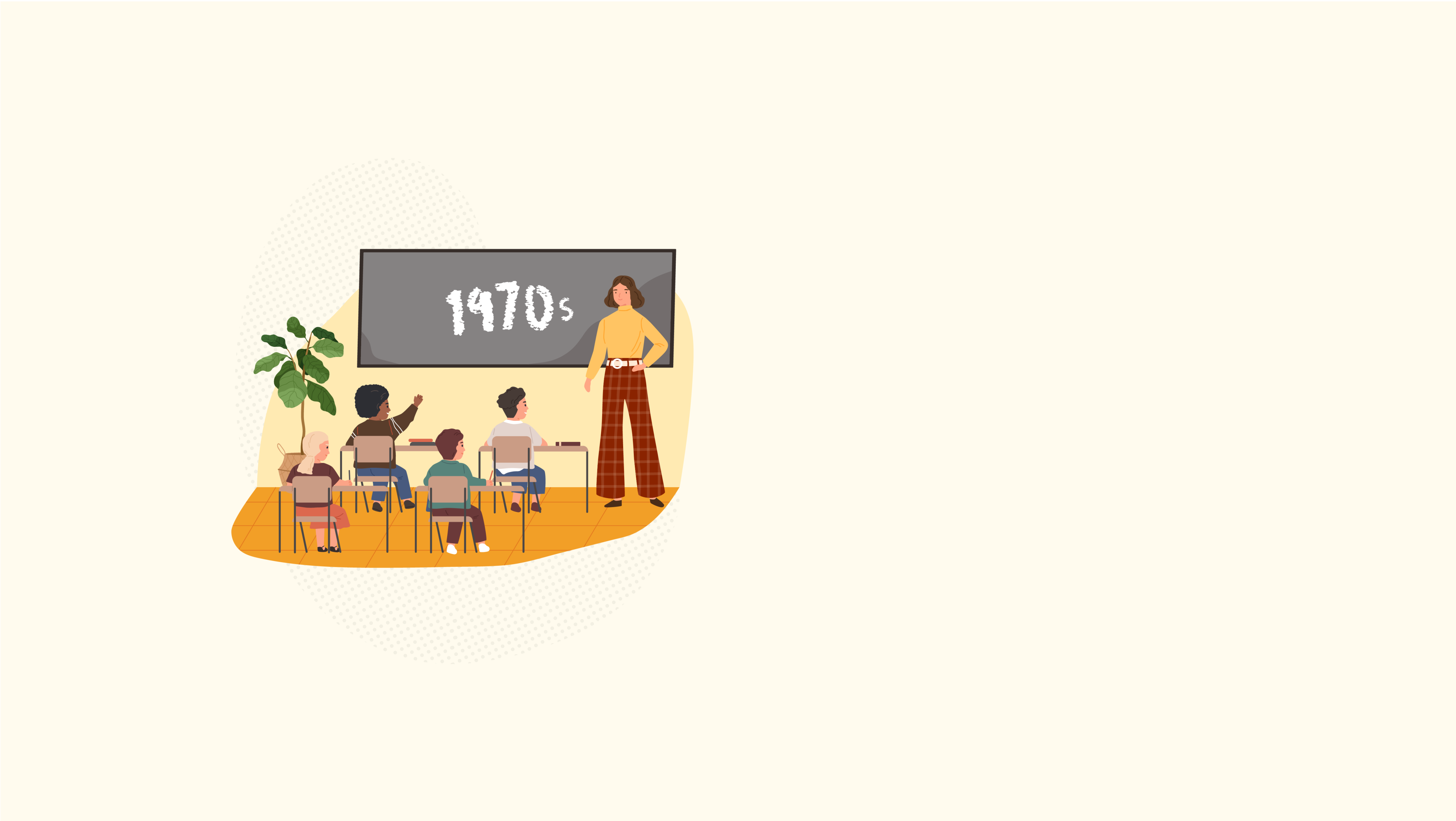


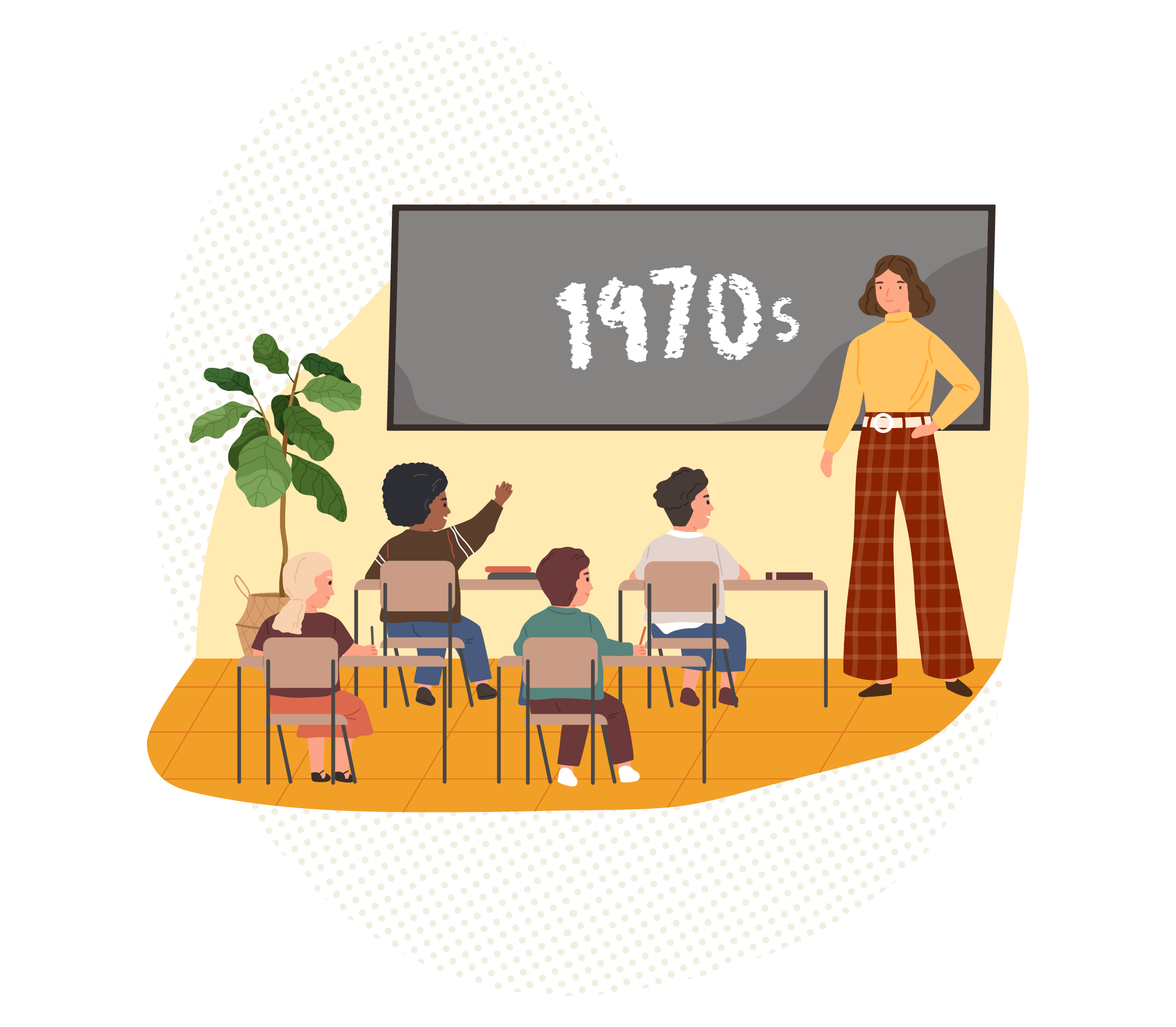
Tell us a bit more about your new book, 'About Our Schools'.
“'About Our Schools' is split into four parts and brings together a range of perspectives and viewpoints. It covers curriculum, pedagogy and assessment; school improvement and leadership; admissions, attendance, exclusions and behaviour; special educational needs and disabilities (SEND), and then the governance and finance of schooling,” explains Tim.
“It was originally intended to be based on interviews with 14 former secretaries of state and five ministers. However, one thing led to another once we got into it, and it expanded. The ministers and secretaries of state suggested the civil servants we should speak to, who then suggested SPADs [special advisers], and then we got into HMI and Ofsted. Then it was heads of multi-academy trusts (MATs), directors of children’s services (DCSs), heads of schools within MATs, head teachers of academies outside of MATs, free schools and governors. And then, what did teachers themselves think? In all, we ended up talking to 108 people.

“From all this evidence, we’ve been able to form a view about what influences policy and the weather the teacher makes. We start from the premise that it is the teacher who makes the big difference, sets the climate and creates the weather within a classroom setting. We’ve allowed the imagery of weather to influence the whole book because we think the head of department, the head of phase, the head of the school and, beyond the school, the MAT and the government all stir up the climate that affects that weather.
“Obviously, any teacher wants to create good weather so that children feel positive and engaged. That, to us, explains why differences in quality between teachers is something like eight times more important than differences between schools. The variation between schools can be big, but it is nowhere near as important as an in-school variation.

“The book has, in total, 13 chapters. It starts with 1976 and that whole period of doubt and disillusion. It ends in the present day, and we argue we’re now in a similar period of doubt and disillusion about the direction of schooling. Between 1976 and now, we’ve had a period of marketisation, competition, managerialism and centralisation. Loads of powers have gone away from local authorities and schools, and we think we have ended up with the most amazingly autocratic system, centrally directed and regulated.
“But we also argue that we’re in a period where we can, potentially, have a new age. We outline in the final chapter the measures we feel need to be taken to restore hope, ambition and collaborative partnerships – all to unlock far more talent than we have managed in the past,” adds Tim.
What, therefore, would be your advice to school leaders looking to the new school year?

TIM BRIGHOUSE
“The difficulty for many school leaders is that the here and now is always in their face. We have often said that to be a successful leader, you need unwarranted optimism – and I am sure most NAHT members would relate to that. You need to regard crisis as the norm and complexity as the fun. And there is no shortage of crisis and complexity, much of it manufactured by a regulatory, centrally directed Department for Education (DfE),” says Tim.
"You need a bottomless pit of intellectual curiosity and a keen absence of doubt or self-pity. Finally, you need to be clever at spotting gaps in the hedges; in other words, what could you do, even with this welter of central direction, to be creative and motivate your staff?
“NAHT members coming to our book will be at different points in their careers. Some will be new in post. Many will have been in post for five, six, seven or even eight years. Others will be contemplating their last year as a leader.
“How you behave and respond to the challenges you face will be different; it will depend on those circumstances. If you’re new, you want your stakeholders – particularly school staff, parents and teachers – to know there’s an alignment, an integrity between what you say, what you do and who you are. You’ll be aware that you are more ignorant of the situation, yet people will blame you if you prevaricate or procrastinate.
“So, take excellent advice, but don’t put off difficult decisions. Bear in mind that it will take you a little while to be sure of the context you’re working in.
“If you’ve been in post five, six or seven years, you might be in danger of everybody knowing exactly how you behave and stopping you doing the things you want to do. Just keep on asking yourself, ‘am I delegating enough or too much?’, ‘how am I bringing people on?’, ‘am I still taking the blame and giving credit to others?’ and ‘am I still making absolutely sure that communication is good, or did I just do all that in the first year?’. Communication is the thing that so often breaks down at senior leadership level.
“We also argue that one of the most important things you can do, as a senior leader, is focus more on using ‘appreciative inquiry’ and ‘problem-solving’. As we explain in the book, appreciative inquiry is a leadership approach that prioritises strengths-based, positive approaches to leadership development and organisational change; you prioritise identifying what is good in something or what good can be taken or learnt from it. Appreciative inquiry also involves lots of dialogue, researching what might work better and then deciding on a plan of action. We emphasise that in our book.
“It creates energy. Staff won’t get disillusioned when you are doing appreciative inquiry. They will get tired, but they will know challenges are addressed constructively and shared problems are solved – which is the second approach. You identify a problem, analyse the causes, analyse possible solutions, and then decide on a plan of action. With appreciative inquiry and problem-solving, you need three parts of appreciative inquiry to one part of problem-solving.
“There is a third model, which is ‘ensuring compliance’. You decide what is right, prescribe a single solution, monitor it, and punish the deviants and those you deem inadequate. We think the danger in the present day is that schools are within a climate – so back to our weather theme – where the central government prioritises ensuring compliance within its own behaviour.
“We think, as school leaders, you’ve got to be really careful not to replicate that within the school – ensuring compliance only happens when essential or when there’s a crisis. We, instead, major on appreciative inquiry, problem-solving and understanding.
“We think that’s a major message for teachers, head teachers and school leaders this September. How much appreciative inquiry and problem-solving are you doing, or are we falling victim to – or too often relying on – ensuring compliance? Because if you are, you will lose your best teachers in the end,” Tim adds.








TIM BRIGHOUSE
“The difficulty for many school leaders is that the here and now is always in their face. We have often said that to be a successful leader, you need unwarranted optimism – and I am sure most NAHT members would relate to that. You need to regard crisis as the norm and complexity as the fun. And there is no shortage of crisis and complexity, much of it manufactured by a regulatory, centrally directed Department for Education (DfE),” says Tim.
"You need a bottomless pit of intellectual curiosity and a keen absence of doubt or self-pity. Finally, you need to be clever at spotting gaps in the hedges; in other words, what could you do, even with this welter of central direction, to be creative and motivate your staff?
“NAHT members coming to our book will be at different points in their careers. Some will be new in post. Many will have been in post for five, six, seven or even eight years. Others will be contemplating their last year as a leader.
“How you behave and respond to the challenges you face will be different; it will depend on those circumstances. If you’re new, you want your stakeholders – particularly school staff, parents and teachers – to know there’s an alignment, an integrity between what you say, what you do and who you are. You’ll be aware that you are more ignorant of the situation, yet people will blame you if you prevaricate or procrastinate.
“So, take excellent advice, but don’t put off difficult decisions. Bear in mind that it will take you a little while to be sure of the context you’re working in.
“If you’ve been in post five, six or seven years, you might be in danger of everybody knowing exactly how you behave and stopping you doing the things you want to do. Just keep on asking yourself, ‘am I delegating enough or too much?’, ‘how am I bringing people on?’, ‘am I still taking the blame and giving credit to others?’ and ‘am I still making absolutely sure that communication is good, or did I just do all that in the first year?’. Communication is the thing that so often breaks down at senior leadership level.

“We also argue that one of the most important things you can do, as a senior leader, is focus more on using ‘appreciative inquiry’ and ‘problem-solving’. As we explain in the book, appreciative inquiry is a leadership approach that prioritises strengths-based, positive approaches to leadership development and organisational change; you prioritise identifying what is good in something or what good can be taken or learnt from it. Appreciative inquiry also involves lots of dialogue, researching what might work better and then deciding on a plan of action. We emphasise that in our book.
“It creates energy. Staff won’t get disillusioned when you are doing appreciative inquiry. They will get tired, but they will know challenges are addressed constructively and shared problems are solved – which is the second approach. You identify a problem, analyse the causes, analyse possible solutions, and then decide on a plan of action. With appreciative inquiry and problem-solving, you need three parts of appreciative inquiry to one part of problem-solving.
“There is a third model, which is ‘ensuring compliance’. You decide what is right, prescribe a single solution, monitor it, and punish the deviants and those you deem inadequate. We think the danger in the present day is that schools are within a climate – so back to our weather theme – where the central government prioritises ensuring compliance within its own behaviour.
“We think, as school leaders, you’ve got to be really careful not to replicate that within the school – ensuring compliance only happens when essential or when there’s a crisis. We, instead, major on appreciative inquiry, problem-solving and understanding.
“We think that’s a major message for teachers, head teachers and school leaders this September. How much appreciative inquiry and problem-solving are you doing, or are we falling victim to – or too often relying on – ensuring compliance? Because if you are, you will lose your best teachers in the end,” Tim adds.
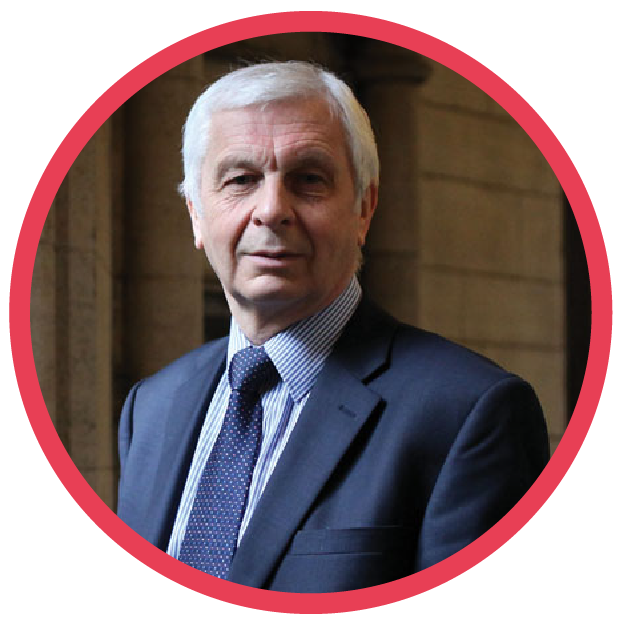
MICK WATERS
“The other element to this conversation, which I think will be increasingly important as we head into the autumn, is the cost-of-living crisis and, within that, child, family and community poverty,” says Mick.
“As a head teacher starting the new school year in September, I think this is something you will be grappling with, which will be preoccupying you, and of course, I know it is one of NAHT’s core campaigning priorities.
“We will all need – but the government most of all – to be considering the developing situation with families; the way the cost-of-living crisis is affecting the families of the children we serve as well as the children themselves; the growing awareness of issues to do with mental health, of both children and the families they come from; and the outlook on attendance, addressing the growing challenge of special educational needs and disabilities (SEND) and what’s happening there,” he adds.



MICK WATERS
“The other element to this conversation, which I think will be increasingly important as we head into the autumn, is the cost-of-living crisis and, within that, child, family and community poverty,” says Mick.
“As a head teacher starting the new school year in September, I think this is something you will be grappling with, which will be preoccupying you, and of course, I know it is one of NAHT’s core campaigning priorities.

“We will all need – but the government most of all – to be considering the developing situation with families; the way the cost-of-living crisis is affecting the families of the children we serve as well as the children themselves; the growing awareness of issues to do with mental health, of both children and the families they come from; and the outlook on attendance, addressing the growing challenge of special educational needs and disabilities (SEND) and what’s happening there,” he adds.

Given all the day-to-day ‘weather’ school leaders are currently buffeted by, how should they carve out that headspace – that time to reflect and think strategically – to find the ‘gaps in the hedges’ that will make a difference?
“It is hard, it is challenging, and it will vary depending on the circumstances that you’re in,” concedes Tim. “But it is also possible. One head teacher we met had inherited a school site and had been there 15 years, so you might have thought they would be weighed down.
“But he wasn’t. He was incredibly creative; he had made connections to build a new arts theatre at the school, and he had enough land to build a small estate of houses – this is a state school, with the new homes being for staff occupation and to attract the right staff to spend three or four years there.
“You may say, ‘well, I can’t do that’. No, you might not be able to do that, but you might be able to exploit the apprenticeships scheme – there are plenty of gaps in the hedges, though it will depend on where you are,” he says.
“It is finding the things to exploit to move the agenda on for your school,” highlights Mick.
“Another thing I would add is that, wherever you are in headship or leadership of schools, you’re probably taking on new staff at the beginning of the year.
“There is a responsibility on leadership and the rest of the staff to embrace new staff (especially our fledgling teachers) to support them, make them feel fully professional and give them a picture of where the profession could take them. Our commitment to the future of teaching has to be seen through the welcome we provide to people coming through the front door,” he adds.

Given all the day-to-day ‘weather’ school leaders are currently buffeted by, how should they carve out that headspace – that time to reflect and think strategically – to find the ‘gaps in the hedges’ that will make a difference?
“It is hard, it is challenging, and it will vary depending on the circumstances that you’re in,” concedes Tim. “But it is also possible. One head teacher we met had inherited a school site and had been there 15 years, so you might have thought they would be weighed down.
“But he wasn’t. He was incredibly creative; he had made connections to build a new arts theatre at the school, and he had enough land to build a small estate of houses – this is a state school, with the new homes being for staff occupation and to attract the right staff to spend three or four years there.
“You may say, ‘well, I can’t do that’. No, you might not be able to do that, but you might be able to exploit the apprenticeships scheme – there are plenty of gaps in the hedges, though it will depend on where you are,” he says.
“It is finding the things to exploit to move the agenda on for your school,” highlights Mick.
“Another thing I would add is that, wherever you are in headship or leadership of schools, you’re probably taking on new staff at the beginning of the year.
“There is a responsibility on leadership and the rest of the staff to embrace new staff (especially our fledgling teachers) to support them, make them feel fully professional and give them a picture of where the profession could take them. Our commitment to the future of teaching has to be seen through the welcome we provide to people coming through the front door,” he adds.

In the book, you talk about the ‘expert consultant’ teacher. Can you explain what you mean by that?
“The suggestion in the book is that we need to create a level or cohort of teachers who have really deep-rooted expertise based on research and pedagogy,” says Mick.
“The model we use is that of consultants in the medical profession. They gradually build a team of people around them, not just in their school but in other schools too. In time, you develop the idea that people want to work with this consultant because they know it will take them further professionally.
“At the moment, for example, we have special educational needs coordinators (SENCos), and the national award for SENCos helps people do the ‘Co’ bit, but how far does it really help them get to grips with the ‘SEND’ element in all of its complexities? We suggest we need consultant teachers – real experts – who specialise and have the knowledge and competency to help and develop people to deal with, say, attention deficit hyperactivity disorder (ADHD) or autism or whatever else we need to look at.
“Moreover, if you’re a consultant in a hospital, you’re not a consultant for the top half of the body; you’re a consultant on elbows, shoulders, the brain, eyes or lungs – and so we should be equally specialised in a school setting.
“Expert consultant teachers will also attract people from other schools because they want to be a part of their consultancy team. It is about partnership, people working collaboratively, and it is deeply professional. We put a lot of store on the fact that leadership is about developing professionalism in our community of teaching,” he adds.




In the book, you talk about the ‘expert consultant’ teacher. Can you explain what you mean by that?
“The suggestion in the book is that we need to create a level or cohort of teachers who have really deep-rooted expertise based on research and pedagogy,” says Mick.
“The model we use is that of consultants in the medical profession. They gradually build a team of people around them, not just in their school but in other schools too. In time, you develop the idea that people want to work with this consultant because they know it will take them further professionally.

“At the moment, for example, we have special educational needs coordinators (SENCos), and the national award for SENCos helps people do the ‘Co’ bit, but how far does it really help them get to grips with the ‘SEND’ element in all of its complexities? We suggest we need consultant teachers – real experts – who specialise and have the knowledge and competency to help and develop people to deal with, say, attention deficit hyperactivity disorder (ADHD) or autism or whatever else we need to look at.
“Moreover, if you’re a consultant in a hospital, you’re not a consultant for the top half of the body; you’re a consultant on elbows, shoulders, the brain, eyes or lungs – and so we should be equally specialised in a school setting.
“Expert consultant teachers will also attract people from other schools because they want to be a part of their consultancy team. It is about partnership, people working collaboratively, and it is deeply professional. We put a lot of store on the fact that leadership is about developing professionalism in our community of teaching,” he adds.
Finally, what can – or should – be the role of organisations such as NAHT in this change agenda? How can NAHT help school leaders and schools to create these models, to carve out this space for reflection, thinking and, simply, leadership?
“NAHT can contribute by encouraging professional conversations and advocacy; it can contribute through its publications, social media networks, events, branch and regional networks, and so on,” says Tim.
“If, as we believe, the future lies in collaborative partnerships rather than being preoccupied with school autonomy and competition between schools, then the focus on professional and leadership development is critical; the development of the whole profession and improving education in the round, not just by focusing on bread-and-butter trade union issues.
“I think NAHT has been terrific at promoting that wider debate, which also draws teachers into schools in the first place,” Tim adds.
“NAHT can promote partnership in a really, really positive way to try to address that appreciative inquiry, problem-solving agenda – and to question the compliance model that is growing out of control in England,” says Mick.

Finally, what can – or should – be the role of organisations such as NAHT in this change agenda? How can NAHT help school leaders and schools to create these models, to carve out this space for reflection, thinking and, simply, leadership?
“NAHT can contribute by encouraging professional conversations and advocacy; it can contribute through its publications, social media networks, events, branch and regional networks, and so on,” says Tim.
“If, as we believe, the future lies in collaborative partnerships rather than being preoccupied with school autonomy and competition between schools, then the focus on professional and leadership development is critical; the development of the whole profession and improving education in the round, not just by focusing on bread-and-butter trade union issues.
“I think NAHT has been terrific at promoting that wider debate, which also draws teachers into schools in the first place,” Tim adds.
“NAHT can promote partnership in a really, really positive way to try to address that appreciative inquiry, problem-solving agenda – and to question the compliance model that is growing out of control in England,” says Mick.

FIND OUT MORE
'About Our Schools: improving on previous best' was published in January 2022 and is available from physical and online bookshops.


